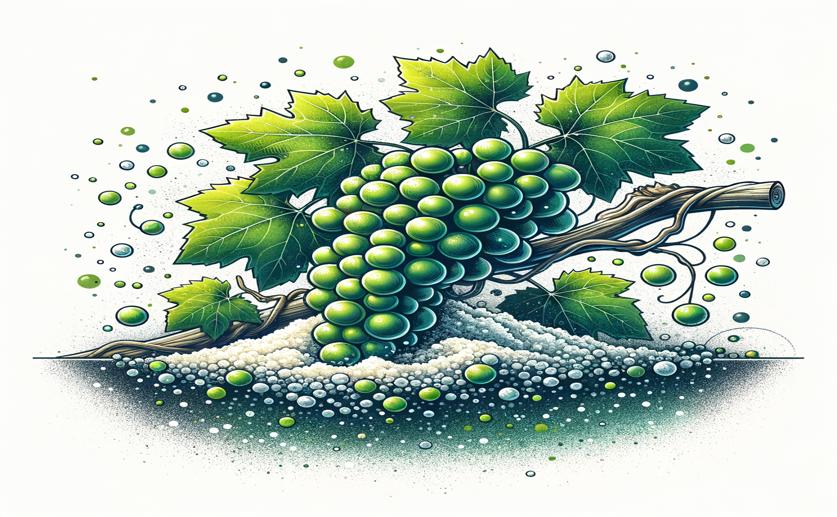
Melatonin Helps Grape Plants Stay Green and Resist Salt Stress
Jenn Hoskins
25th April, 2024

Image Source: Natural Science News, 2024
Key Findings
- In Shanxi, melatonin helps grape seedlings resist soil salinity and alkalinity
- Melatonin preserves chlorophyll, maintaining photosynthesis under stress
- It boosts antioxidants in plants, protecting against stress-induced damage
AgricultureBiochemPlant Science
References
Main Study
1) Exogenous melatonin delays leaves senescence and enhances saline and alkaline stress tolerance in grape seedlings.
Published 31st December, 2024 (future Journal edition)
https://doi.org/10.1080/15592324.2024.2334511
Related Studies
2) Interactive effects of exogenous melatonin and Rhizophagus intraradices on saline-alkaline stress tolerance in Leymus chinensis.
3) Effects of Exogenous Melatonin on Root Physiology, Transcriptome and Metabolome of Cotton Seedlings under Salt Stress.
4) Strigolactone alleviates the salinity-alkalinity stress of Malus hupehensis seedlings.



 8th April, 2024 | Jim Crocker
8th April, 2024 | Jim Crocker